This is why you can't sleep well in a hotel room
Have trouble catching some decent shut-eye when you're staying in hotels? You're not alone. And there's a fascinating reason for your inability to sleep.
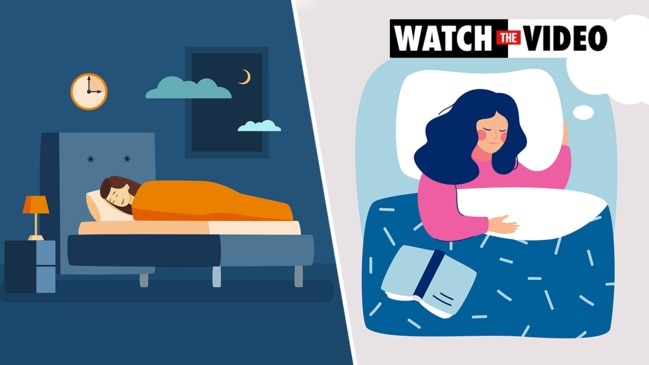
Lifestyle
Don't miss out on the headlines from Lifestyle. Followed categories will be added to My News.
Whether you are travelling for work or leisure, there is one universal truth about hotels all around the globe.
No matter how luxurious they are, sometimes you can have an absolutely wretched night's sleep. It doesn't matter how high the thread count is.
There are a few reasons for this, and there are a few expert tips on what you can do to maximise your chances for having a decent kip in a hotel.
Essentially, it's a mix of psychological, neurological and environmental factors that contribute to the problem.
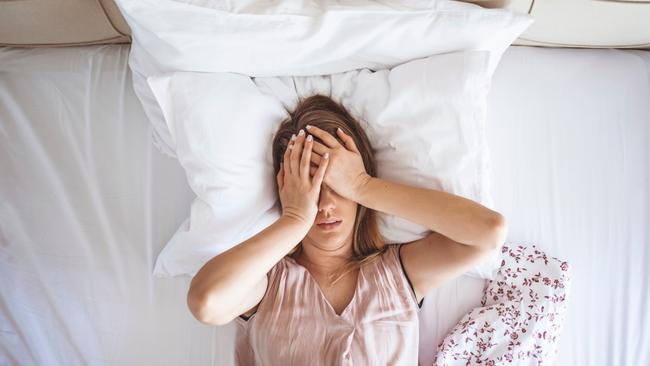
Why is it so hard to get a good night's sleep in a hotel?
Our brains, frustratingly, have trouble switching off... even if we're meant to be on holiday
Dr. Christopher Winter, a sleep specialist and author of The Sleep Solution, notes that our bodies are deeply attuned to our environments and it's not surprising that we don't sleep well when we parachute into an unfamiliar environment.
“Sleep is incredibly sensitive to context,” he explains. “When we change our environment, especially to a space that’s unfamiliar, it can create anxiety or discomfort that makes it harder to fall asleep.”
Scientists call our inability to sleep in new surroundings the “first night effect”. Our brains tend to be on alert when we're trying to sleep in a new environment - it's an evolutionary trait developed to help protect us from potential threats.
"Sleeping puts us in a very vulnerable position so we need to feel safe and comfortable to fall deeply asleep," Dr Mark Williams, Professor of Cognitive Neuroscience tells Escape.
"If you are in a strange or unusual place, like a hotel room, then falling deeply asleep can be difficult. Our brain is on higher alert and so relaxing and dropping into deep sleep is hard. Then all the environmental factors have an even bigger effect".
Light sensitivity
One significant factor is the disruption of circadian rhythms, the internal clock that regulates our sleep-wake cycle. Even if you're not changing time zones and battling jet lag, this can still come into play ... and light plays a huge part in this.
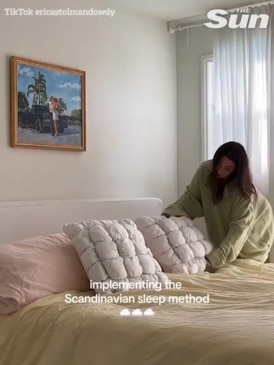
I now sleep with a sleep mask every night, and I take it with me when I travel (after trialling about 15 of them, this is the one that I have found to be the best). It blocks out any pesky smoke detector lights, digital alarm clocks and street light.
You should also limit your screen time before you go to sleep - the blue light emitted by smartphones and laptops can interfere with melatonin production. Experts recommend avoiding screens at least an hour before bed. Instead, consider reading a book or practicing relaxation techniques.
Also, if the blinds are rubbish and are letting light in, we love this coat hanger hack that a flight attendant went viral for a while ago (basically you get the coathanger with the clips from the wardrobe and use it to properly clip the curtains closed).
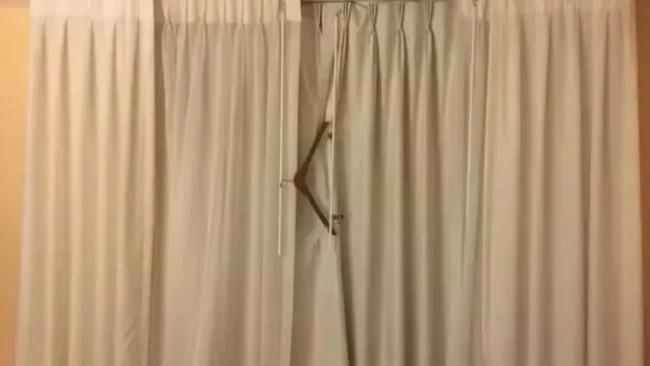
Noise
Whether it's other hotel guests coming home late and making noise in the hallway, traffic noise, or early morning garbage collection in the laneway below your room, unfamiliar noise can also disrupt your sleep. (Fun fact: my parents used to own an Airbnb down the Great Ocean Road and they once had a complaint that the sound of the waves crashing on the beach was too loud).
According to Dr. Walker, even low levels of noise can disrupt the deeper stages of sleep, making it difficult to reach restorative sleep.
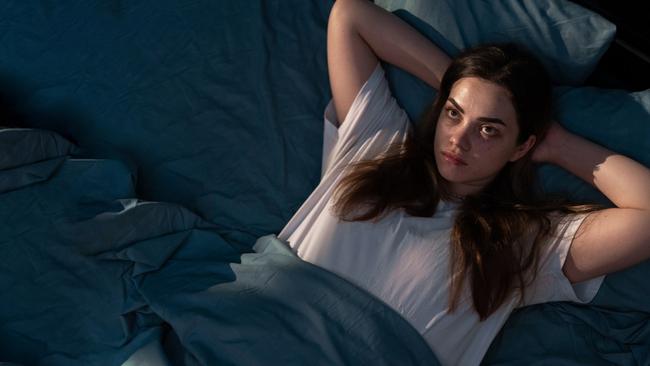
For this reason, ear plugs are also now a permanent part of my travel kit. Again, after trying a bunch, I now swear by these and will recommend them to anyone who'll listen. The will block out a snoring partner, but you can still hear your morning alarm through them.
Friends of mine who travel regularly also love this travel white noise machine which they use at home, and then when they travel, which makes the environment more familiar (and obvious drowns out any other environmental noise).
Temperature
It took me a while, but I eventually realised that for me, the standard 21/22 degrees that most hotels have the thermostat on is WAY too hot to sleep, especially when the bedding is a plush duvet.So after a bit of trial and error I have worked out I need to drop that bad boy to 18 degrees if there's a thick doona on the bed and no option for just a sheet. This is backed by scientists who say the ideal temperature for optimum sleep is 15-19°C.
Dehydration
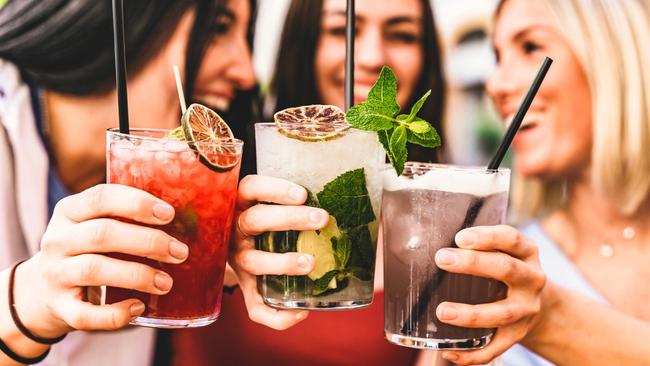
Waking up at 3am and cracking your knee on the corner of the bed when you're trying to find the bathroom to get water is a travelling rite of passage. Whether it be because you're in holiday mode and you're having a few drinks with dinner, or you've just had a long-haul flight that has clean sucked all the moisture out of your body, it's a good idea to make up an electrolyte drink and have it by the hotel bed if you think there's a chance you're dehydrated. These small sachets are sugar free and are the best electrolytes for travel in my opinion.
The bedding doesn't meet our personal preference
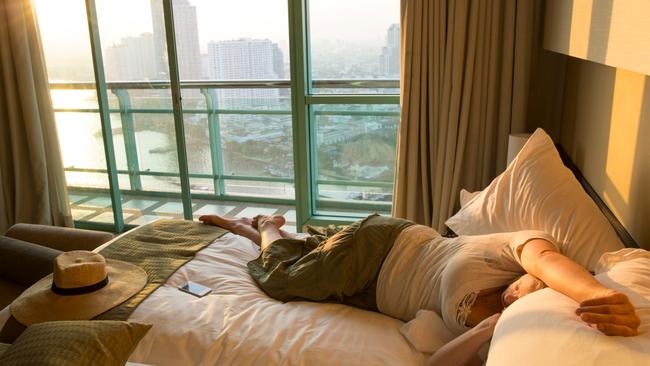
A study published in the Journal of Clinical Sleep Medicine found that the type and quality of bedding directly influences sleep quality in a fairly significant way. The unfamiliarity of hotel bedding can lead to discomfort, further complicating the quest for a good night’s rest. If you have neck issues you can consider bringing your own pillow, or checking whether your hotel offers a pillow menu.
Sleep experts also say that packing a familiar pillow or blanket can provide comfort and reduce the feeling of being in an unfamiliar environment.
Anxiety of sleeping through an alarm
Travel-related stress can also trigger anxiety, making it hard to unwind.
Often when we're staying in a hotel we have a non-negotiable time that we have to wake up - often for an early morning flight. I used to go through the routine of double checking my phone alarm. I've now worked out that if I have a back up wake up call scheduled with the hotel five minutes after my alarm is due to go off, it alleviates that alarm anxiety.
Originally published as This is why you can't sleep well in a hotel room





